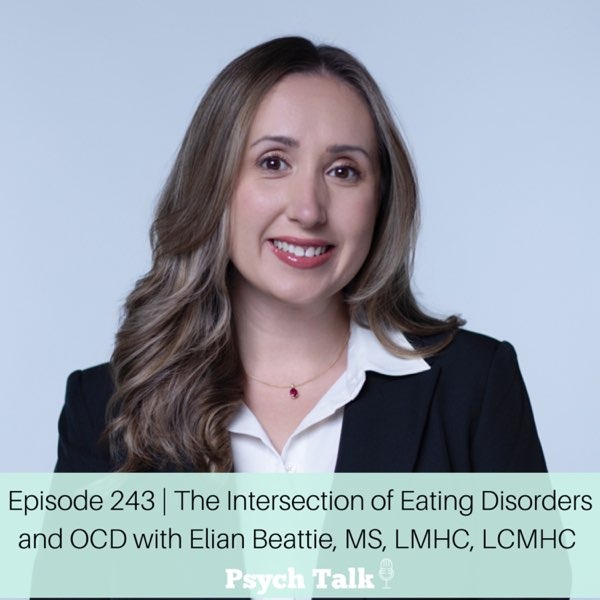
Specialist or Generalist? How to Find the Right Therapist in Seacoast NH
September 24, 2025
Perinatal Mental Health: Why We Should Be Talking About Dads, Too
December 9, 2025When your teenager is struggling with an eating disorder, it can feel overwhelming, for them and for you. As someone who has worked with teens and families for more than a decade, I’ve seen that recovery is absolutely possible. Healing happens when families step in with compassion, structure, and the right professional support.
Here are five actionable ways you can help your teen move toward recovery from anorexia, bulimia, or binge eating disorder.
1. Start a Calm, Non-Judgmental Conversation
The first step toward healing often begins with a simple conversation, but how you talk makes all the difference.
What this looks like in practice:
- Use “I” statements instead of “you” statements.
Example: “I’ve noticed you seem unhappy, and I’m worried about you.” - Replace “but” with “and” to keep validation intact.
Example: “I know this is hard, and I believe you can do this.” - Avoid comments about weight, size, or appearance.
- Listen more than you speak. Even if your teen isn’t ready to open up, your steady presence matters.
- If the conversation doesn’t go smoothly, stay grounded and leave the door open for another time.
These small shifts communicate safety and support, essential ingredients for recovery.
2. Create Structured, Supportive Mealtimes
Eating disorders thrive in chaos and secrecy. Structure helps dilute that power.
Try these approaches:
- When possible, plan supervised family meals. Invite your teen to share meal ideas within the treatment plan, prioritizing balance and variety.
- Agree ahead of time that no one will discuss calories, weight, or label foods as “good,” “bad,” “healthy,” or “unhealthy.”
- Remember that even “imperfect” meals are not failures. The goal is connection, not perfection.
A predictable, calm mealtime environment helps restore normal eating patterns and lowers anxiety around food.
3. Partner with Professionals and Stay Involved
Recovery from an eating disorder almost always requires professional help, but parents remain a crucial part of the team.
Here’s how you can stay engaged:
- Ask the treatment team what role you can play. Family-based treatment (FBT) is often the gold standard for teens. Learn more about family-based treatment here.
- Stay informed through trusted sources like the Multiservice Eating Disorders Association (MEDA).
- Involve a registered dietitian who specializes in eating disorders to guide meal planning and nutrition support.
- Maintain medical oversight with an eating-disorder-informed pediatrician.
- Seek support for yourself—parent groups or individual therapy can help you stay grounded through the process.
Your involvement reassures your teen that they’re not in this alone.
4. Model a Healthy Relationship with Food and Body Image
Teens notice how the adults around them relate to food, exercise, and body image. Modeling a balanced approach sends a powerful message.
Practice these habits:
- Use neutral language about food, focus on nourishment, satisfaction, and energy.
- Choose meals and activities that emphasize fun and flexibility, not restriction or perfection.
- Avoid self-criticism or negative body talk in front of your teen.
- Reinforce that health comes in many shapes and sizes; it’s not defined by weight or appearance.
When you demonstrate body respect and food neutrality, you help reshape your teen’s perspective.
5. Build Hope and Identity Beyond the Disorder
Eating disorders can become intertwined with identity, especially during adolescence. Helping your teen rediscover who they are beyond the illness is essential for long-term recovery.
Encourage this process by:
- Highlighting your teen’s interests, passions, and strengths—music, art, sports, activism, friendships, and giving them space to explore.
- Celebrating small victories like showing up for meals, trying a new food, or speaking up in therapy.
- Promoting self-care that isn’t food or fitness-focused, such as time with friends, creative projects, or volunteering.
- Repeating hopeful messages:
“Recovery is possible. I believe in you. You deserve more than this illness.”
Your belief in their future can counter the isolation and hopelessness eating disorders create.
Final Thoughts
Supporting a teenager through an eating disorder is not about fixing things overnight. It’s about walking beside them. Stay connected, offer structure, collaborate with professionals, and hold onto hope, even when progress feels slow.
Recovery is possible. Your teen is not defined by their eating disorder, and neither are you. Together, you can rebuild a healthy relationship with food, body, and life.
Teen & Family Therapy on the NH Seacoast
At Insights Group, we believe that involving the whole family can be a powerful part of recovery.
If you’re located on the NH Seacoast—Portsmouth, Rye, Greenland, Exeter, Hampton, North Hampton, Stratham, Dover, Durham, New Castle, Newfields, Newmarket, or Seabrook—and want to explore how therapy can help your teen and your family find a way forward, schedule a consultation today.
FAQ: Helping a Teen Recover From an Eating Disorder
Yes. Parents and caregivers can play a major role in teen eating disorder recovery by creating a calm, structured home environment, staying involved with treatment, and offering consistent, non-judgmental support. Family involvement is often a key factor in long-term recovery from anorexia, bulimia, and binge eating disorder.
Start with a calm conversation focused on what you’ve noticed (mood, stress, eating patterns), not weight or appearance. Then seek professional support, typically an eating-disorder-informed medical provider and a therapist who treats eating disorders in teens. If there are urgent medical concerns (fainting, chest pain, severe restriction, purging, suicidal thoughts), seek immediate medical help.
Use “I” statements, keep your tone steady, and validate their distress. Try: “I’m worried about you, and I want to understand what you’re going through.” Avoid comments about weight, size, dieting, or “healthy vs. unhealthy” foods. Focus on safety, support, and getting help together.
It depends on your teen’s symptoms and medical needs, but many teens benefit from a team approach that may include therapy, medical monitoring, and nutrition support. Family-Based Treatment (FBT) is commonly recommended for adolescents because it actively involves caregivers in the recovery process.
Consider therapy as soon as you suspect an eating disorder, especially if there’s secrecy around food, increased anxiety at meals, compulsive exercise, bingeing, purging, or rapid changes in mood or functioning. Family therapy can be especially helpful when meals are tense, communication is strained, or the eating disorder is impacting the whole household.



